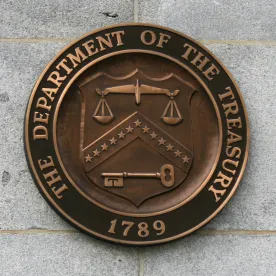Companies doing business in the Middle East take note: On March 30th, the Treasury Department published its quarterly list of countries that require participation or cooperation with an international boycott. The primary boycott of concern today is the Arab League’s boycott of Israel. Even though many of the listed countries are WTO members and were required to shut down their Arab League offices as a condition of membership, many boycott-related requests are still being issued by government agencies and companies in these countries. The countries that are designated on this most recent list are as follows:
-
Iraq
-
Kuwait
-
Lebanon
-
Libya
-
Qatar
-
Saudi Arabia
-
Syria
-
The United Arab Emirates
-
Yemen
These are the same countries that were identified by the Treasury Department in its December 2016 list.
U.S. antiboycott laws and regulations are complex and impact both U.S. companies and their foreign affiliates. The Commerce and Treasury Departments both administer and enforce the U.S. antiboycott laws and regulations. Unless otherwise exempted, the Commerce Department requires U.S. companies and their foreign affiliates to report their receipt of written or verbal foreign boycott-related requests to the Office of Antiboycott Compliance (OAC) on a quarterly basis and prohibits companies from complying with the request. The Treasury Department ‘s rules apply to U.S. taxpayers and require companies to report their operations in or with boycotting countries, or any boycott requests received, to the IRS on Form 5713 with their federal income tax returns. Responding to boycott requests or failing to timely report the receipt of a request can lead to the imposition of civil penalties by the OAC. Similarly, the IRS will deny certain tax benefits to U.S. taxpayers if they are found to have cooperated with a foreign boycott.
Foreign boycott-related requests can take many forms and can be either verbal or in writing. They can appear in bid invitations, purchase agreements, letters of credit and can even pop up in emails, telephone conversations, and in-person meetings. Some recent examples of boycott-related requests include:
-
“Provide a certificate of origin stating that your goods are not products of Israel.”
-
“Provide the religion and nationality of your officers and board members.”
-
“Suppliers cannot be on the Israel boycott list published by the central Arab League.”
-
“Provide a signed statement from the shipping company or its agent containing the name, flag, and nationality of the carrying vessel and its eligibility to enter Arab ports."
In addition, implementing letters of credit that contain foreign boycott terms or conditions is also prohibited. U.S. companies doing business in the Middle East should ensure that their personnel on the front lines with customers and supply chain partners are trained to identify potential boycott requests and escalate them to senior compliance personnel or legal counsel to determine the applicable OAC and IRS requirements. To access the Treasury Department’s March 30th Federal Register notice, click here.



 />i
/>i


